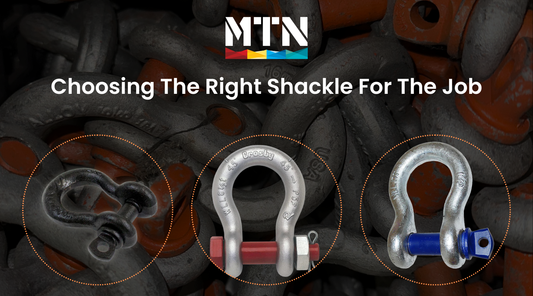Kong Frog vs. Traditional Carabiners: Which Is Best For You?
Article
Kong Frog vs Traditional Carabiners: The Automatic Connector Explained
Faster, safer, more intuitive attachments. See how the Kong Frog compares to regular carabiners, when to use each, and which gear to pair it with.
Why the Kong Frog?
The Kong Frog is a patented, directional connector developed with the Politecnico di Milano. Built from high-quality aluminum alloy and featuring an automatic closure system, it clamps as soon as it contacts the anchor—eliminating manual fiddling and speeding up secure connections in tight or awkward positions.
Key Advantages
- Speed & Efficiency: Automatic clamp-on contact for rapid attachment.
- Consistency: Reduces user error compared to manual screw/lock actions.
- Directional Design: Built for intuitive, repeatable connections.
Great For
- Climbing & mountaineering approaches
- Rope access & work positioning
- Rescue, arborist, and industrial scenarios
Kong Frog 360 — Product Gallery




Kong Frog vs. Traditional Carabiners (At a Glance)
| Feature | Traditional Carabiner | Kong Frog Connector |
|---|---|---|
| Locking System | Manual screw/auto-lock; requires deliberate action to confirm closure. | Automatic clamp on anchor contact; immediate tactile confirmation. |
| Speed of Use | Moderate; depends on user and conditions (cold, gloves, awkward anchors). | Fast; touch, clamp, go—designed to reduce fumbling. |
| Ease of Use | Familiar for most users; muscle memory with gates/sleeves. | Intuitive directional action, especially helpful in hard-to-reach placements. |
| Versatility | Broad shapes (D, HMS, oval) for many systems, belay/anchor use. | Excels at quick, repeatable anchoring; pairs well with lanyards/slings. |
| Best Use | General climbing tasks, belay, anchors, racking. | Rapid, reliable attachment in technical, industrial, or rescue contexts. |

Kong Frog: How It Works
The Frog’s automatic closure engages when the jaws touch a compatible anchor. Once seated, the mechanism locks without the typical twist-or-screw action. Result: faster attachment with fewer steps and a more consistent outcome.
- Material: High-strength aluminum alloy
- Action: Directional, automatic clamping
- Typical Pairing: Short lanyard/tether (e.g., ~120 mm sling)
 MTN TIP
MTN TIP
Use the Kong Frog when speed and repeatability matter (awkward anchors, limited reach, gloves, or time pressure). For systems that require frequent gate management (belay, HMS tie-in, big master points), keep a selection of traditional locking carabiners in your kit. Always verify compatibility with your anchor hardware and follow manufacturer guidance.
Related: Best Carabiners For Your Next Outdoor Adventure
Choosing the right carabiner shape and lock style (D, HMS, oval; screw-lock vs. auto-lock) is fundamental to your system. For a deep dive into carabiner types, best uses, and shopping picks, read our guide:
Tip: Use that guide to decide when to reach for a traditional locking carabiner vs. when to benefit from the Kong Frog’s automatic clamping.
When to Choose Frog vs. Traditional
Choose Kong Frog if…
- You need rapid, repeatable anchoring.
- Anchors are hard to reach or you’re operating with gloves.
- You want to minimize manual steps under load/pressure.
Choose Traditional Carabiners if…
- You need general-purpose versatility (belay, racking, anchors).
- Your system uses shape-specific carabiners (D, HMS, oval).
- You need widely standardized locking options.
Either/Both Work When…
- Used within maker specs and properly inspected.
- Anchors are compatible and rated for the connector.
- You maintain clear load paths and redundancy where required.
Get the Kong Frog at MTN SHOP
Upgrade your connector to a faster, more intuitive option. Pair with a short lanyard or sling for quick, repeatable attachments.
Frequently Asked Questions
What is the Kong Frog used for?
Is the Kong Frog safer than a regular carabiner?
Can the Frog replace all my locking carabiners?
What should I pair with the Kong Frog?
Always follow the connector manufacturer’s instructions and applicable standards. Inspect connectors and anchors before each use. Training is required for professional applications.



